|
Dusty Dog Reviews The whole project is hip, anti-academic, the poetry of reluctant grown-ups, picking noses in church. An enjoyable romp! Though also serious. |
|
Nick DiSpoldo, Small Press Review (on Children, Churches and Daddies, April 1997) Children, Churches and Daddies is eclectic, alive and is as contemporary as tomorrow’s news. |



|
Kenneth DiMaggio (on cc&d, April 2011) CC&D continues to have an edge with intelligence. It seems like a lot of poetry and small press publications are getting more conservative or just playing it too academically safe. Once in awhile I come across a self-advertized journal on the edge, but the problem is that some of the work just tries to shock you for the hell of it, and only ends up embarrassing you the reader. CC&D has a nice balance; [the] publication takes risks, but can thankfully take them without the juvenile attempt to shock. |
Volume 225, October 2011
Children, Churches and Daddies (cc&d)
The Unreligious, Non-Family-Oriented Literary and Art Magazine
Internet ISSN 1555-1555, print ISSN 1068-5154
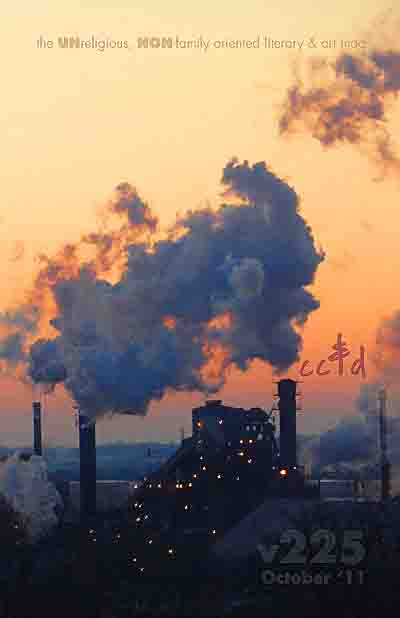
see what’s in this issue...
Note that in the print edition of cc&d magazine, all artwork within the pages of the book appear in black and white.
|
Order this issue from our printer as a a digest-sized paperback book (5.5" x 8.5") perfect-bound w/ b&w pages You can also get this from our printer as a a ISBN# paperback book (6" x 9") perfect-bound w/ b&w pages “Up In Smoke”: |

poetry
the passionate stuff
Jesoo has finally arrivedFritz Hamilton
Jesoo has finally arrived
stepping on an IED &
what went wrong/ the
crucify/ they
of course his balls, but
would have preferred the nuts/ the
going on between them, &
a bloody joke/ humanity
a little of both) a
the criminal laughter is contagious/ the
his dick starts to dance & wiggle/ he
convert to Islam to !
|
destructionFritz Hamilton
My last three poems have been destroyed/ I
I do San Anselmo police
they’ve done this to me before, so
does my daughter who
thanks was to take me aside &
to the cross with the rest of me/ but
keeps replacing them with bigger &
San Anselmo trying to dig them
poems because they offend her/ the
do crucify me uptime down, & as my
feed them to the mangy dog with
his teeth/ ironically they call him
|
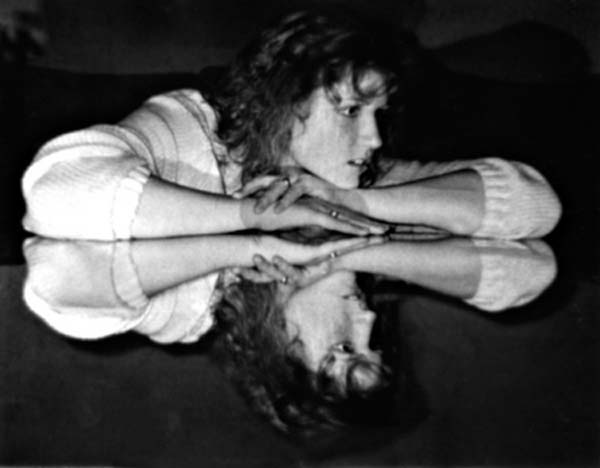
Inside the MirrorMel Waldman
Looking
|
| Janet Kuypers reading the Mel Waldman poem Inside the Mirror from cc&d magazine (v225) |

Watch this YouTube video read live 10/11/11 at the Café |
BIOMel Waldman, Ph. D.Dr. Mel Waldman is a licensed New York State psychologist and a candidate in Psychoanalysis at the Center for Modern Psychoanalytic Studies (CMPS). He is also a poet, writer, artist, and singer/songwriter. After 9/11, he wrote 4 songs, including “Our Song,” which addresses the tragedy. His stories have appeared in numerous literary reviews and commercial magazines including HAPPY, SWEET ANNIE PRESS, CHILDREN, CHURCHES AND DADDIES and DOWN IN THE DIRT (SCARS PUBLICATIONS), NEW THOUGHT JOURNAL, THE BROOKLYN LITERARY REVIEW, HARDBOILED, HARDBOILED DETECTIVE, DETECTIVE STORY MAGAZINE, ESPIONAGE, and THE SAINT. He is a past winner of the literary GRADIVA AWARD in Psychoanalysis and was nominated for a PUSHCART PRIZE in literature. Periodically, he has given poetry and prose readings and has appeared on national T.V. and cable T.V. He is a member of Mystery Writers of America, Private Eye Writers of America, American Mensa, Ltd., and the American Psychological Association. He is currently working on a mystery novel inspired by Freud’s case studies. Who Killed the Heartbreak Kid?, a mystery novel, was published by iUniverse in February 2006. It can be purchased at www.iuniverse.com/bookstore/, www.bn.com, at /www.amazon.com, and other online bookstores or through local bookstores. Recently, some of his poems have appeared online in THE JERUSALEM POST. Dark Soul of the Millennium, a collection of plays and poetry, was published by World Audience, Inc. in January 2007. It can be purchased at www.worldaudience.org, www.bn.com, at /www.amazon.com, and other online bookstores or through local bookstores. A 7-volume short story collection was published by World Audience, Inc. in June 2007 and can also be purchased online at the above-mentioned sites. |
Look, Man—Nathan Riggs
I should have told you that your sister and I stripped
We stood in front of the window at the apex
Ten years later, she and I talked
Instead we discussed how you shot yourself
back against the wall,
|
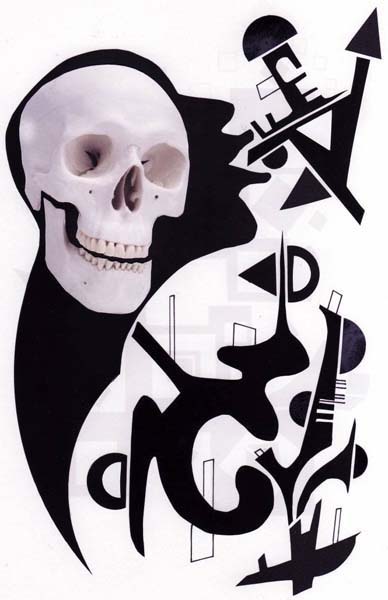
01-11-2010 CAK, art by Üzeyir Lokman ÇAYCI
We used to watch you
Kelley Jean White MD |
| Janet Kuypers reading the Kelley Jean White MD poem We used to watch you from the teachers lounge from cc&d magazine (v225) |

Watch this YouTube video read live 10/11/11 at the Café |
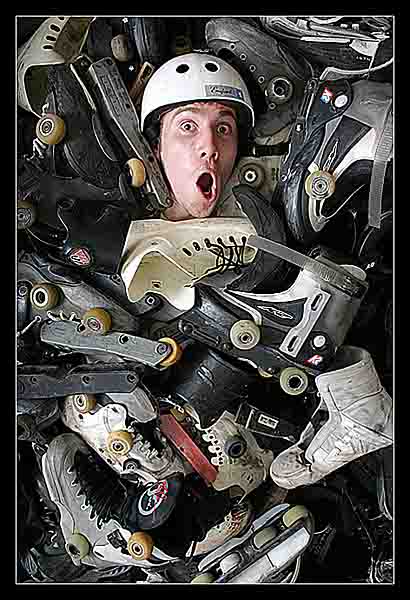
X-Treme, art by Nick Brazinsky
The Boring Meeting.Matthew Roberts
I sipped on my strong red wine
Put the prawn in my mouth,
big business, we were trying to make
|
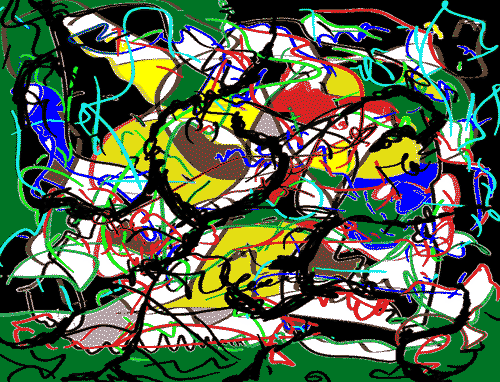
First Try, art by the HA!Man of South Africa
My Hologram LifeKyrsten Bean
Let me touch you with my
Let me fracture you with
Let me tack you onto the wall
Let me take you
|
| Janet Kuypers reading the Kyrsten Bean poem My Hologram Life from cc&d magazine (v225) |

Watch this YouTube video read live 10/11/11 at the Café |
Kyrsten Bean BioA poet, musician and writer, Kyrsten had been stacking piles of poetry in her living spaces for 29 years. At some point she decided that her words were lonely – they were suffocating stacked three feet high in old notebooks. She is on a crusade to find a home for her homeless compositions of words, and spends all of her free time searching for havens. She lingers outside the fringe, trying at times to get a real job, only to throw in the towel again and go back to creating.
|
Still Life with Small TalkGale Acuff
When I say goodbye to Miss Hooker at
doesn’t like her skirts—they’re too short, she says,
in the middle—I mean I’m in between them
I’d talk about the weather, at first, and
One day I’ll be old enough to court her,
enough to sweet-talk her through the salad
On Saturday nights when I say my prayers
and we do and have about seventeen.
|
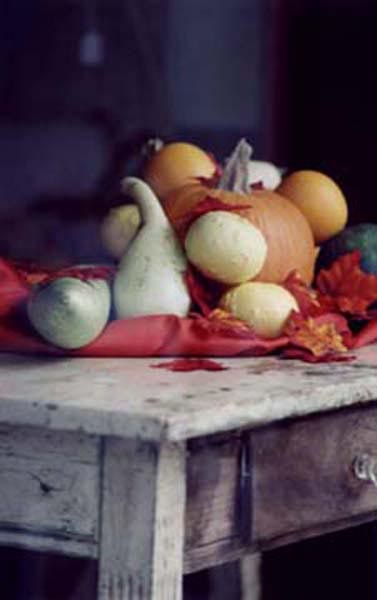
Still Life Through Window, art by Cheryl Townsend
Allegory for AmericaMichael Ceraolo
The instances of thousands of birds falling from the sky
|
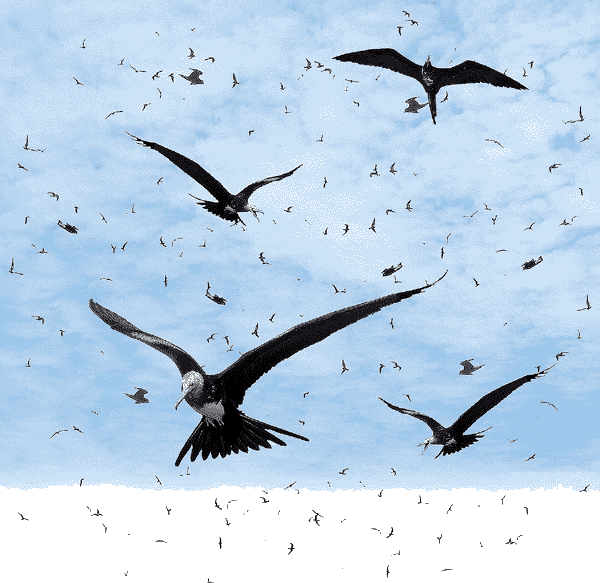
| Janet Kuypers reading the Michael Ceraolo poem Allegory for America from cc&d magazine (v225) |

Watch this YouTube video read live 10/11/11 at the Café |
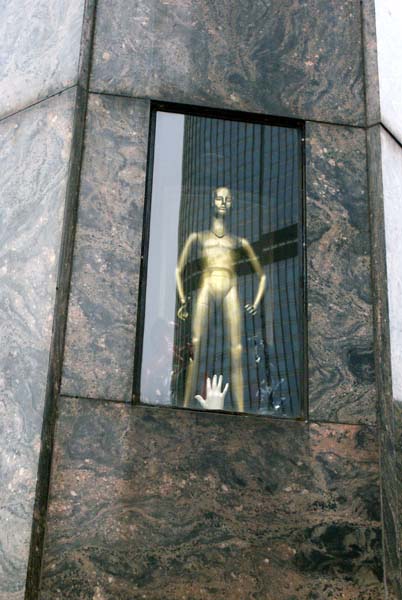
Poem From The Hartford Epic (Culture)Kenneth DiMaggio
Several
What you don’t
Will someone please
Next topic
My civilization
|
| Bob Rashkow reading the Kenneth DiMaggio poem Poem From The Hartford Epic (Culture) from cc&d magazine (v225) |

Watch this YouTube video read live 10/11/11 at the Café |
Books and Blood and a Biker...David S. Pointer
The highway patrolman directs post fatality traffic
|
| Janet Kuypers reading the David S. Pointer poem Books and Blood and a Biker from cc&d magazine (v225) |

Watch this YouTube video read live 10/11/11 at the Café |
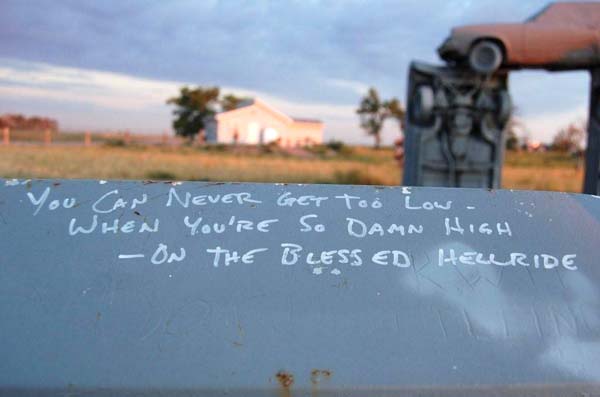
ummer ‘07; 240, art by David Thompson
BloodthirstyMaxwell Baumbach
The citizens of New York
it is too violent
half-way across the country
do not let him out
politicians
so while Mixed Martial Arts
his only remaining and we smile
|
So LongLisa Cappiello
At the bittersweet celebration
You refuse to say goodbye
|
End NotesLinda Webb Aceto
I am plum wore out of philosophic jargon,
|
FreedomEric Shelman
Today I went—
|
HA! HA! HA!Brett E. Devlin
It seems to me I am mediocre,
|
| John Yotko reads the Brett E. Devlin 10/11 cc&d poem HA! HA! HA! from the cc&d collection book Fragments |

Watch this YouTube video read live 12/04/11, at the Café weekly poetry open mike in Chicago |
Birds on a WireJim Davis, Jr.
Let’s be real for a moment,
|
Jim Davis, Jr. Bio |
Letter to a SenatorI.B. Rad
Despite being vilified, recent Supreme Court rulings
Respectfully yours, I.B. Rad
|
Jim Davis, Jr. Bio |
Harms WoodsRaúl Niño
She must have made a perfect dead girl, hanging
She was “depressed” the front page read,
I remember hearing that friends of hers
|
The NamelessMatthew Rodgers
When I write
|
DaisyMichael A. Rodriguez
Simple astrum flowing
|
| Janet Kuypers reading the Michael A. Rodriguez poem Daisy from cc&d magazine (v225) |

Watch this YouTube video read live 10/11/11 at the Café |

Daffodils, photographed 04/17/05 by John Yotko
It Comes With the NightMatthew Guzman
Music seeps through the walls
Of this small apartment,
|
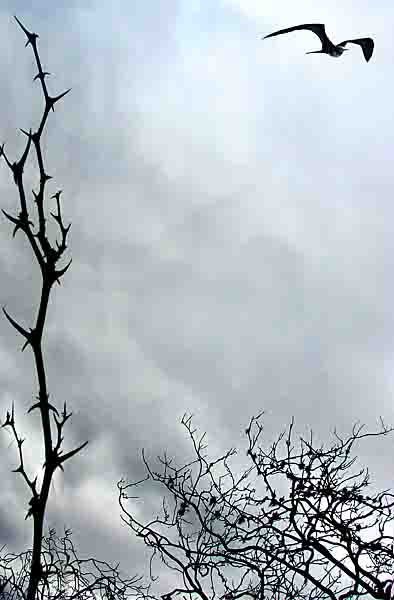
Spring And Not One Singing Bird
Jenene Ravesloot |
| BONUS: Jenene Ravesloot reading her poem Spring And Not One Singing Bird Sestina Variation (which appears in the October 2011 issue (v225) of cc&d magazine |
|
Watch this YouTube video read live 03/29/11, live at the Café in Chicago |

Watch the YouTube video of Jenene Ravesloot reading this poem at the open mike the Café Gallery (at Gallery Cabaret’ in Chicago,, 3/14/12) |
| BONUS: Jenene Ravesloot reading her poem Spring And Not One Singing Bird Sestina Variation (which appears in the October 2011 issue (v225) of cc&d magazine and the ISBN# book “Up In Smoke” |

Watch this YouTube video read live 08/30/11, live at the Café in Chicago |
Ex-Soldier and Morning PaperJohn Grey
First thing each morning,
|
Devil’s Diary EntryDan Fitzgerald
Day whatever:
|
Dentist in IraqJanet Kuypers02/05/11 I’m a dentist still in the service so they shipped me to Iraq
all I do now
I see all the blood
I miss
see http://twitter.com/janetkuypers
|
| Dentist in Iraq |

Watch the YouTube video of this BEFORE the live Chicago show of the “a Very Goth Beach Party” feature 07/03/11 at “Beach Poets” |
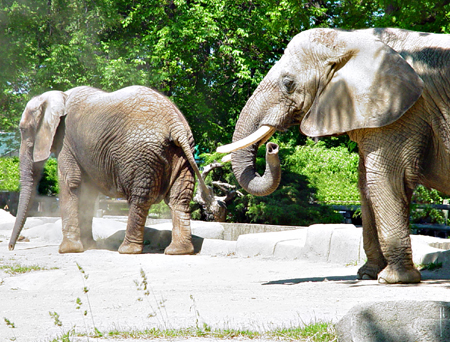
Elephants Carry the WorldJanet Kuypers03/09/11 (conceived 03/08/11)
elephants carry the world
and i remember
slow down,
and as you started to pull over
you pulled over,
we both just sat there
he placed some hard wrapped candies
all I could think was
when you heard my thoughts
and i thought,
|
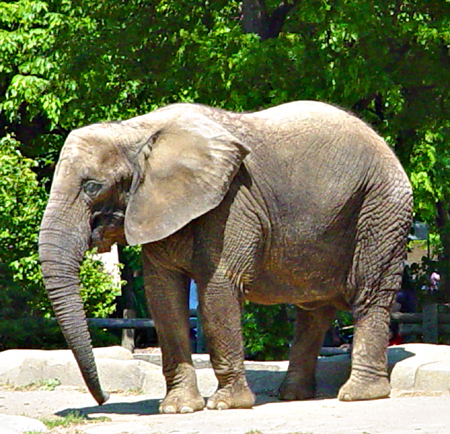

| Elephants Carry the World |

Watch this YouTube video listen: |

|

|

Watch the YouTube video from IPB: the feature 06/29/11 of Impromptu Poetry on the Beach |

See feature-length YouTube video of many poems read at Beach Poets from IPB: the Impromptu Poetry on the Beach feature 06/29/11 |
End of an EmpireJanet Kuypers02/25/11
i’ve heard political pundits
our products are made in third world countries
maybe this really is
now, the only empire
and like america, sodomy was illegal
and in america, i think the seventh state
a comedic political pundit just asked
and i’m sure that it’s not
and how closely did the life of Caligula
previously published in Heavy Hands Ink |
| End of an Empire |

Watch this YouTube video listen: |

|

|
|
Janet Kuypers Bio
Janet Kuypers has a Communications degree in News/Editorial Journalism (starting in computer science engineering studies) from the UIUC. She had the equivalent of a minor in photography and specialized in creative writing. A portrait photographer for years in the early 1990s, she was also an acquaintance rape workshop facilitator, and she started her publishing career as an editor of two literary magazines. Later she was an art director, webmaster and photographer for a few magazines for a publishing company in Chicago, and this Journalism major was even the final featured poetry performer of 15 poets with a 10 minute feature at the 2006 Society of Professional Journalism Expo’s Chicago Poetry Showcase. This certified minister was even the officiant of a wedding in 2006. |

flash fiction
(the really really short prose)
Flash fiction.Daniel S. WeinbergOnce upon a time in Fredonia there was a little baby boy named Shlomo. This boy was cute as a Prince and yet he did not move at all by himself. He didn’t crawl, hop on his butt, or walk alone. He was very serious looking rarely smiling. His parents thought Shlomo was perfect in every way. His doctor thought that development was slow. But little Slomo had a secret! He could fly but only when no one was watching him. Shlomo would first rise up over his little bed. Then he would fly over to the bathroom and look in the mirror. And he touched the ceiling with his tiny fingers and laughed. “Ha ha ha,” said Shlomo.
|
the wastrelPatrick Fealeyplans? none. hopes? well, you’d like to say none. fears? working on ‘em. but not many. loves? i’ve traveled that haunted road with every sky and no matter how slow i walk i always end in a sweat. talk about rides, sometimes i look at the trees and a horse in the field and get thinking that would be easier . . . then i remember i’m a walker. on the road, imperative is burning high, on the return jaunt i’m wiping my eyes with the rag of inevitability. i know my hopes sink – i don’t know where. i’m moving with simplicity, a faith in an origin i’ve seen before. i stop at cemeteries, where i meet people who did their best. i don’t want to join them, but wonder how i got here. strangers can stop me, but i’m getting over shock and effort . . i watch the path. i am not beat. i am wasted.
|

prose
the meat and potatoes stuff
Lost & FoundAmy Dunn Caldwell
Padded black leather studded with gold pins covered the front door. She went in because of the hour she’d spent driving there, because she’d found a parking space, and because nothing had scared her too badly between the car and the door. There was no reason to turn around.
Ten years before, after high school graduation, Kara had moved to the city to be a dancer while Lisbeth had gone to Stanford. They kept in touch at first, but time and circumstance moved them away from each other. Now Kara was working a pole in a strip club. Lisbeth watched, ignoring her nudity because other Karas were layered over the one in front of her. She saw Kara at the lake in her new black swimsuit, giggling because Teddy Danvers was there, Kara with one leg on the barr, stretching sideways, torn knit leg warmers scrunched down over the laces of her toe shoes, Kara shifting into fourth gear and letting the Mustang run up the highway to a party in the hills. The woman grabbed the pole and bent from the waist, arching her back and leaning out over the cluster of customers who circled her end of the stage, but Lisbeth only saw the other Kara, the one she used to know, her best friend.
Without a plan, Lisbeth sat clutching her purse, feeling invisible. A nasty-faced waitress leaned against the bar and Lisbeth wanted to ask her how to get backstage, but she’d run out of nerve. She’d feel too naked walking across the room. While Lisbeth was still assessing her options, Kara came out from behind the curtain.
Kara finished the dance, rubbed the thinning hair on the customer’s head, and walked towards Lisbeth. The motion of her swinging stride caught Lisbeth’s eye, turning her away from the stage. She watched her friend approach.
|

Crawl, art by Peter LaBerge
(who also has artwork at flickr)
The ForgottenMeghan Frank
They call me Cooper, they can’t even bother to learn my real name. How sad is that? My so-called best friends don’t even know my real name. Where did “Cooper” even come from? My name is Meghan Frank, and I am the forgotten.
|
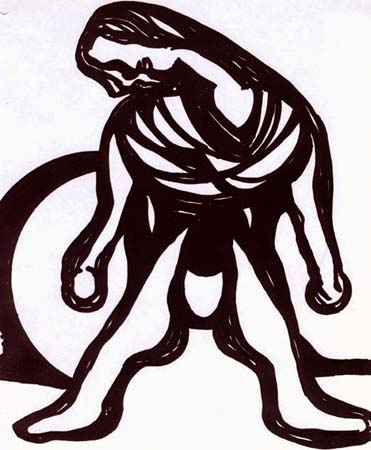
That Helpless Feeling, art by Edward Michael O’Durr Supranowicz
From a GO TRAIN morning,
Darren Fernando |
Dad’s DilemmaMarilyn June Janson
“Dad, I’m not going downstairs!” The overwhelming ammonia smell covered up the stench. Trying to avoid the fumes in the upstairs bedroom, I took in shallow breaths.
I pointed to the bed. “That’s not just a body. She’s my mom.” I went to the bed and sat on the edge. With great effort, I picked up mom’s stiff hand. It felt like lifting steel. That hand, at one time, was soft and comforting. Those fingers fixed my hair, brushed away tears, and held compresses to my forehead when I had the flu.
|
Marilyn June Janson BioMarilyn June Janson, M.S., Ed., is the author of Recipe For Rage, a suspense novel, and Tommy Jenkins: First Teleported Kid, a children’s chapter book. Her new book,The Cool Kids Story Collection, is scheduled for release in March 2011.
|
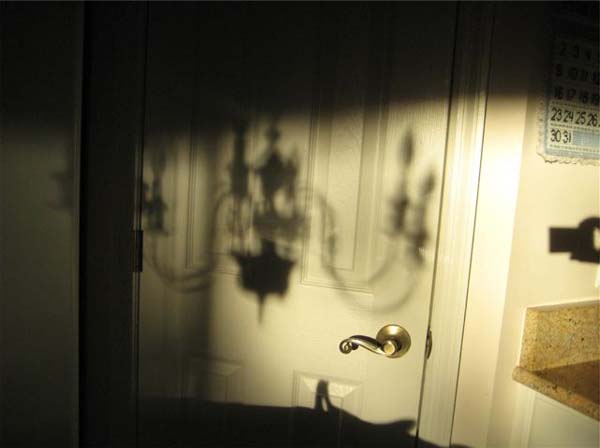
Voices of the Past, art by Rose E. Grier
Chapel of CarrionTimothy B. Dodd
A most pleasant light wind helped carry the young man as he crossed the tiny white bridge, the waters of the creek gurgling below as they passed over large, grey stones and dirty, black pebbles layered in the sediment. Casually feeling for his wallet and car keys he walked briskly, looking back only briefly at the church he had just departed. The breeze added to the dizzying high he felt and a surge of thirst hit him as he stepped off the bridge onto the narrow road that headed up the hollow, dancing arm in arm with the creek. His car was parked a few minutes past the next curve, so he strayed out into the road for the short walk, the heels of his black boots clicking as he moved comfortably on the blacktop. It was an unusually cool day for late August, more like the feeling of mid-October, and the humidity had drifted away after a morning rain to leave the mountains and valleys free of the usual summer sweat.
In his mind he held the tan, finely-chiseled flint and he pushed it hard between his forefinger and thumb until the arrowhead drew blood. The new find glistened, freshly pulled from the headwaters of the creek a short walk from his home. Surrounded by woods thick with deer up until the day they cleared the area for the new interstate highway, no one could see him there. He had a sense that the thick trees also protected his imagination from modern interference, allowing him to see his own visions whenever he went to roam over the crevices of the mountain’s slopes or sit on the large boulders that jutted from the ridge. Looking closely at the arrowhead he thought hard to imagine the last hand that had touched it. With the thought, he began to shake. He saw a hand that was smooth yet sharp, hard but almost soft, like the tool itself, and then he understood why the body he carried reminded him of that time in his past, that day he had found his first arrowhead.
|
Timothy B. Dodd BioTimothy B. Dodd grew up in Mink Shoals, WV and currently is an ESL teacher in Philadelphia, PA. He completed undergraduate studies in comparative religion at Wesleyan University and a master’s degree in multicultural education at Eastern University. In addition to writing, he enjoys oil painting and traveling the world, particularly the Republic of Georgia and back to Appalachia.
|
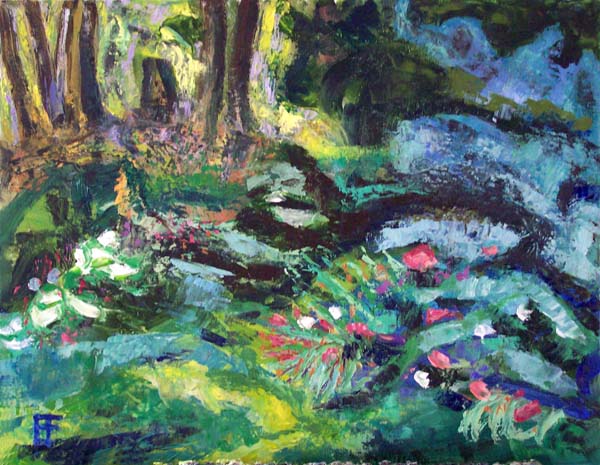
Bellevue Wildflowers, art by Brian Forrest
CeremonyRex Sexton
She wears a gossamer gown and a tiara of stars. The stone walls flicker with torchlight. Incense burns. She is nailed to a cross. Pain stabs through her palms. Her spiked feet quiver together. Phantoms sit beneath her in the grottos of the dark.
Rain moves in from the sea. Sarah sits in her rocking chair by the garret window and watches it drizzle. A black pall is drifting across the bay. Lightening flickers in the distance.
|
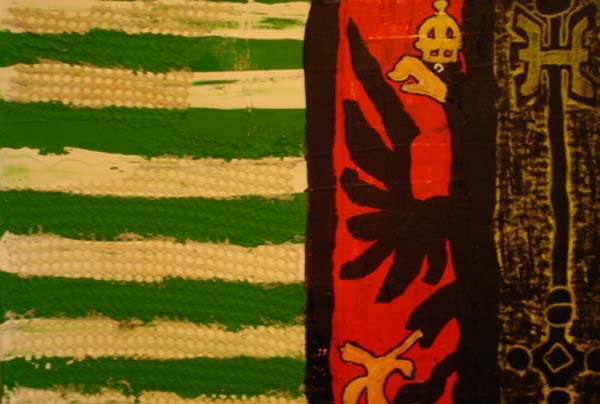
Secure the City, art by Aaron Wilder
All MotorRichard E Marion
Larry Lynche in the penthouse asked me if I had ever been to a Greyhound Race. I said I’m not a sports guy, but OK...
|


Two images from Osha, Dog Canyon, photographed by Brian Hosey
Alfred Hitchcock Ruined My LifeMartha Humphreys
“Really,” I say to Dr. O’Dell. “It’s the truth. Alfred Hitchcock ruined my life.”
|
About Martha HumphreysMartha Humphreys began to write seriously in the 1970s, a few years before a diagnosis of MS forced her to retire from her position as a Speech and English professor at Alabama A&M University. She continued to write while teaching part-time at the University of Alabama in Huntsville for an additional four years. Since retiring from both, she has written full-time and achieved some success. Three YA novels were published and translated into several languages. (She was then represented by Kidde, Hoyt and Picard Literary Agency, which is now out of business.) She has had twenty-four productions of plays, including full productions and staged readings. Several other plays have won or placed in national contests. Early in her career she sold articles and stories to confession, travel and religious magazines. Specifics about all areas are available on request.
|
IntersectionEric Bonholtzer
Paul’s head swam, his eyes burning from the dust. Disorientated, he touched his head, his hands coming away sticky, as if coated in glue. When he saw the blood coating them, he screamed. Then he remembered. The bright lights. The Mack truck. Suddenly he glanced around, still aware of imminent danger, but found himself alone, lying on the ground without another soul in sight. Suddenly, a new fear knotted in Paul’s stomach. Why hasn’t someone come to help me? he wondered, shaking his head, trying to make sense of things. His muscles ached, screaming in protest as he tried to rise.
A faint lapping sound brought Paul from the darkness. His eyes seemed to bulge in a skull that seemed too small, and for the second time in a short period he found himself coming to with only faint pieces of what had happened sticking in his mind. Suddenly, as his memory returned to him, Paul turned his head, looking for her, and discovered the source of the lapping sound. It was a dog, sitting obediently beside his head, tenderly licking the blood from his wound. The mutt’s appearance was strange, but Paul was just grateful to find another living being. The woman was nowhere to be found, and for some strange reason, Paul had doubts about her existence. But at least there was the dog. Paul was already beginning to feel slightly better, knowing he was no longer alone. But as he stood up woozily grabbing his weapon from where he’d dropped it, he took a look at the animal and an overwhelming sense of dread filled him. Realization struck like a lightning bolt and Paul placed the dog instantly. “Webster..Web?” The words fell from his mouth lifelessly, knowing that what he was seeing was impossible. Turning his back on the dog and all its implications, he hastened down the street, taking corners slowly at first then escalating to a full-on heedless run when he heard the dog’s footfalls behind him, running almost playfully at his heels. Paul wanted to put as much space between himself and the dog as possible, cringing at the insanity of it all. It couldn’t be Web, Paul knew, because he’d buried the dog ten years ago. Webster, nicknamed Web, had been Paul’s dog, but he’d died, and yet he was trailing Paul just the same. Terror gripped him and he felt had to get out of there in a hurry, had to get away. He took two corners quickly, afraid to look behind. A crash that sounded like thunder split the night air and made Paul jump, startling him to the point of faltering in his run. Paul swore it sounded like barking, and he dodged into a darkened alley, fearful of what may lurk there, but more afraid of having another encounter with Web, or whatever it was that looked like Web, following him. Paul dodged down one alley after another, wary of every discarded box and cracked window, each recess seeming a perfect hiding spot for an attacker. Paul’s grip on his cudgel tightened. Panic pounded in his heart and he heard more loud barking, the noises seeming to get closer, fear fueling his steps.
“It’s just not working,” the woman said, with an obvious tremor of disappointment. “I felt like I was so close. Twice. The first time I could truly visualize me reaching out to him, and the second, well, I felt like I could touch him.” She shook her head trying to keep the tears from coming. “I was so close and he was ripped away.” She tried to look at the other people in the room, one man, another woman, her daughter and the doctor, but she found she couldn’t meet their eyes. It was as if she had let them all down.
Paul felt a strange sensation, a tingling, almost like a direction of energy infusing him with strength and purpose. He felt as if he was being prodded onward, back into consciousness, and Paul seized on that imperceptible tremor of warmth. Suddenly, the world snapped back into focus and the sense of déjà vu left him instantly. This was uncharted territory. The woman in white, Heather, was yelling something, but Paul couldn’t hear it over the sound of the thundering semi. Instinctively he knew what she was saying. Using his cudgel for leverage, Paul popped the stuck safety harness on the car seat and freed the woman’s daughter. Heather grabbed the newborn and dove to safety, avoiding the out-of-control Mack’s impact. The sound of the crash was deafening but through it all Paul could see something different, feel something different, a sense that the mother and daughter had survived, that everything was all right, and then there was nothing at all but light.
Paul’s eyelids began flicker before finally opening, the light of the hospital room so bright. One hand came up to wipe away tears, as he was greeted, after all this time, by the sight of his brother. Heather and the doctor both had smiles on their faces. Realization set in instantly, and though Paul’s voice was weak, his words were unmistakable. “Thank you.”
|

Debra Purdy Kong, writer, British Columbia, Canada I like the magazine a lot. I like the spacious lay-out and the different coloured pages and the variety of writer’s styles. Too many literary magazines read as if everyone graduated from the same course. We need to collect more voices like these and send them everywhere.
Children, Churches and Daddies. It speaks for itself. Write to Scars Publications to submit poetry, prose and artwork to Children, Churches and Daddies literary magazine, or to inquire about having your own chapbook, and maybe a few reviews like these.
what is veganism? A vegan (VEE-gun) is someone who does not consume any animal products. While vegetarians avoid flesh foods, vegans don’t consume dairy or egg products, as well as animal products in clothing and other sources. why veganism? This cruelty-free lifestyle provides many benefits, to animals, the environment and to ourselves. The meat and dairy industry abuses billions of animals. Animal agriculture takes an enormous toll on the land. Consumtion of animal products has been linked to heart disease, colon and breast cancer, osteoporosis, diabetes and a host of other conditions. so what is vegan action?
We can succeed in shifting agriculture away from factory farming, saving millions, or even billions of chickens, cows, pigs, sheep turkeys and other animals from cruelty. A vegan, cruelty-free lifestyle may be the most important step a person can take towards creatin a more just and compassionate society. Contact us for membership information, t-shirt sales or donations.
vegan action
Children, Churches and Daddies no longer distributes free contributor’s copies of issues. In order to receive issues of Children, Churches and Daddies, contact Janet Kuypers at the cc&d e-mail addres. Free electronic subscriptions are available via email. All you need to do is email ccandd@scars.tv... and ask to be added to the free cc+d electronic subscription mailing list. And you can still see issues every month at the Children, Churches and Daddies website, located at http://scars.tv
MIT Vegetarian Support Group (VSG)
functions: We also have a discussion group for all issues related to vegetarianism, which currently has about 150 members, many of whom are outside the Boston area. The group is focusing more toward outreach and evolving from what it has been in years past. We welcome new members, as well as the opportunity to inform people about the benefits of vegetarianism, to our health, the environment, animal welfare, and a variety of other issues.
Dusty Dog Reviews: These poems document a very complicated internal response to the feminine side of social existence. And as the book proceeds the poems become increasingly psychologically complex and, ultimately, fascinating and genuinely rewarding.
Dusty Dog Reviews: She opens with a poem of her own devising, which has that wintry atmosphere demonstrated in the movie version of Boris Pasternak’s Doctor Zhivago. The atmosphere of wintry white and cold, gloriously murderous cold, stark raging cold, numbing and brutalizing cold, appears almost as a character who announces to his audience, “Wisdom occurs only after a laboriously magnificent disappointment.” Alas, that our Dusty Dog for mat cannot do justice to Ms. Kuypers’ very personal layering of her poem across the page.
Fithian Press, Santa Barbara, CA Indeed, there’s a healthy balance here between wit and dark vision, romance and reality, just as there’s a good balance between words and graphics. The work shows brave self-exploration, and serves as a reminder of mortality and the fragile beauty of friendship.
Mark Blickley, writer You Have to be Published to be Appreciated. Do you want to be heard? Contact Children, Churches and Daddies about book or chapbook publishing. These reviews can be yours. Scars Publications, attention J. Kuypers. We’re only an e-mail away. Write to us.
The Center for Renewable Energy and Sustainable Technology The Solar Energy Research & Education Foundation (SEREF), a non-profit organization based in Washington, D.C., established on Earth Day 1993 the Center for Renewable Energy and Sustainable Technology (CREST) as its central project. CREST’s three principal projects are to provide: * on-site training and education workshops on the sustainable development interconnections of energy, economics and environment; * on-line distance learning/training resources on CREST’s SOLSTICE computer, available from 144 countries through email and the Internet; * on-disc training and educational resources through the use of interactive multimedia applications on CD-ROM computer discs - showcasing current achievements and future opportunities in sustainable energy development. The CREST staff also does “on the road” presentations, demonstrations, and workshops showcasing its activities and available resources. For More Information Please Contact: Deborah Anderson dja@crest.org or (202) 289-0061
Dorrance Publishing Co., Pittsburgh, PA want a review like this? contact scars about getting your own book published.
 The magazine Children Churches and Daddies is Copyright © 1993 through 2011 Scars Publications and Design. The rights of the individual pieces remain with the authors. No material may be reprinted without express permission from the author. 
Okay, nilla wafer. Listen up and listen good. How to save your life. Submit, or I’ll have to kill you.
Dorrance Publishing Co., Pittsburgh, PA: “Hope Chest in the Attic” captures the complexity of human nature and reveals startling yet profound discernments about the travesties that surge through the course of life. This collection of poetry, prose and artwork reflects sensitivity toward feminist issues concerning abuse, sexism and equality. It also probes the emotional torrent that people may experience as a reaction to the delicate topics of death, love and family. “Chain Smoking” depicts the emotional distress that afflicted a friend while he struggled to clarify his sexual ambiguity. Not only does this thought-provoking profile address the plight that homosexuals face in a homophobic society, it also characterizes the essence of friendship. “The room of the rape” is a passionate representation of the suffering rape victims experience. Vivid descriptions, rich symbolism, and candid expressions paint a shocking portrait of victory over the gripping fear that consumes the soul after a painful exploitation.
Dusty Dog Reviews (on Without You): She open with a poem of her own devising, which has that wintry atmosphere demonstrated in the movie version of Boris Pasternak’s Doctor Zhivago. The atmosphere of wintry white and cold, gloriously murderous cold, stark raging cold, numbing and brutalizing cold, appears almost as a character who announces to his audience, “Wisdom occurs only after a laboriously magnificent disappointment.” Alas, that our Dusty Dog for mat cannot do justice to Ms. Kuypers’ very personal layering of her poem across the page.
|